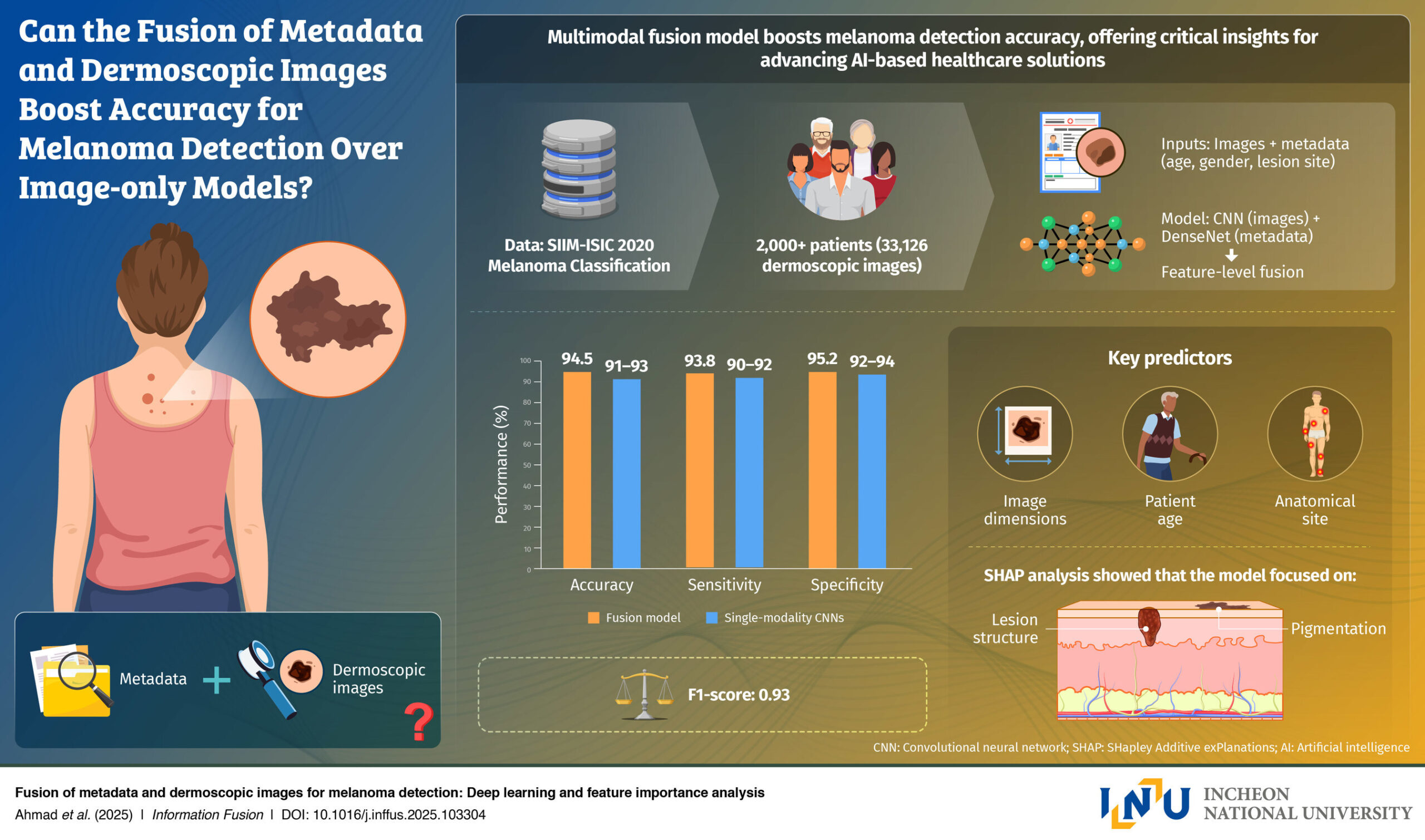A recent study has unveiled an advanced artificial intelligence (AI) model capable of detecting melanoma, the most lethal form of skin cancer, with an impressive accuracy rate of 94.5%. Conducted by researchers from Incheon National University in South Korea, this groundbreaking work integrates dermoscopic images and patient metadata to enhance early diagnosis, which is critical for improving survival rates.
Melanoma is notorious for its ability to masquerade as benign moles or lesions, making timely detection essential. Traditional AI tools often rely solely on images, neglecting vital patient information such as age and gender, which could significantly influence diagnostic outcomes. The new model, developed under the guidance of Professor Gwangill Jeon, combines these elements, marking a significant leap in AI-powered healthcare.
Integrating Data for Enhanced Accuracy
The research team collaborated with the University of West of England, Anglia Ruskin University, and the Royal Military College of Canada to create a deep learning system that utilizes the extensive SIIM-ISIC melanoma dataset. This dataset comprises over 33,000 dermoscopic images linked with clinical metadata, providing a robust foundation for training the AI model.
By analyzing patterns that correlate skin features with patient characteristics, the model achieved an F1-score of 0.94, surpassing existing image-only models like ResNet-50 and EfficientNet. This performance demonstrates the potential of multimodal fusion models in the realm of medical diagnostics.
“Skin cancer, particularly melanoma, is a disease in which early detection is critically important for determining survival rates,” remarked Prof. Jeon. He emphasized the necessity of AI convergence technologies that can consider both imaging data and patient information for accurate diagnosis.
Real-World Applications and Future Prospects
The findings of this study, available online since June 06, 2025 and set for publication in Volume 124 of the journal Information Fusion on December 01, 2025, suggest practical applications that could revolutionize melanoma screening. Prof. Jeon envisions the model as a tool that could enhance real-world diagnostics, enabling the early detection of melanoma through the analysis of both skin images and patient data.
Future implementations may include smartphone applications for skin diagnosis, telemedicine systems, or AI-assisted tools in dermatology clinics. Such innovations could potentially lower misdiagnosis rates and improve healthcare accessibility for patients worldwide.
“The study represents a step forward toward personalized diagnosis and preventive medicine through AI convergence technology,” Prof. Jeon stated. The research underscores the capacity of multimodal AI to bridge the gap between machine learning and clinical decision-making, paving the way for more reliable and user-friendly skin cancer diagnostics.
In conclusion, the integration of advanced AI into melanoma detection not only highlights significant technological progress but also offers hope for improved patient outcomes in the battle against skin cancer. As healthcare continues to evolve through technological advancements, the promise of early detection could transform lives and enhance survival rates across the globe.






